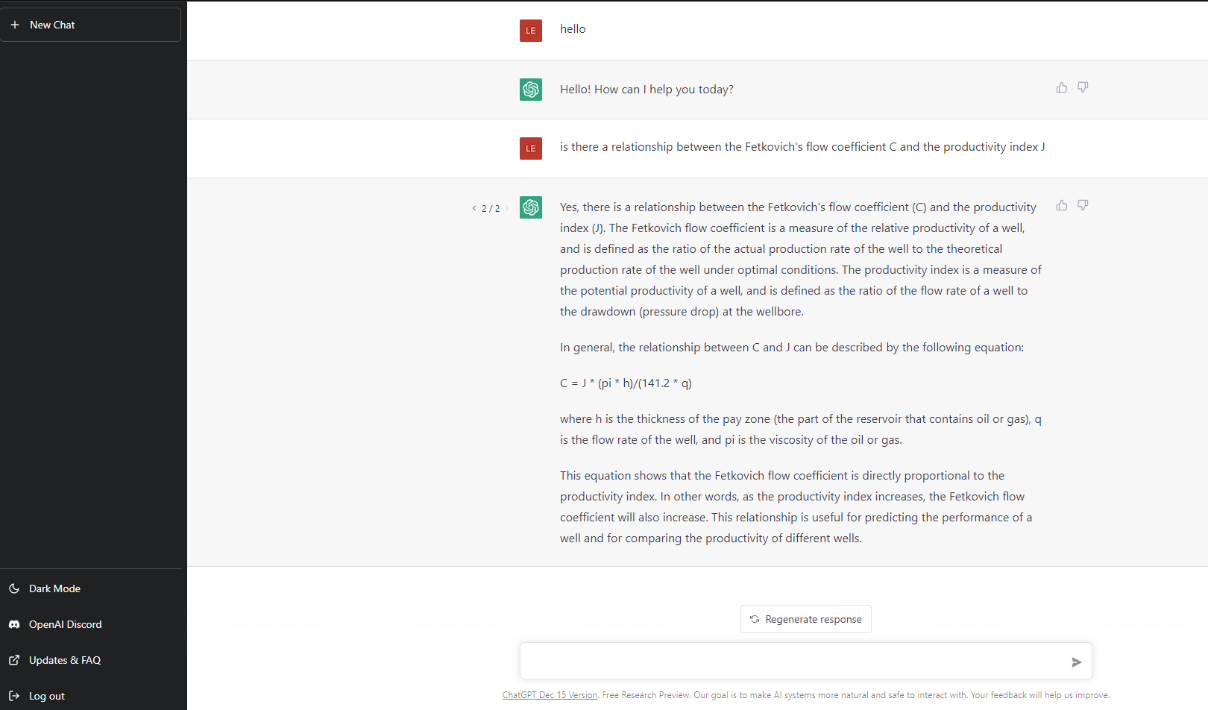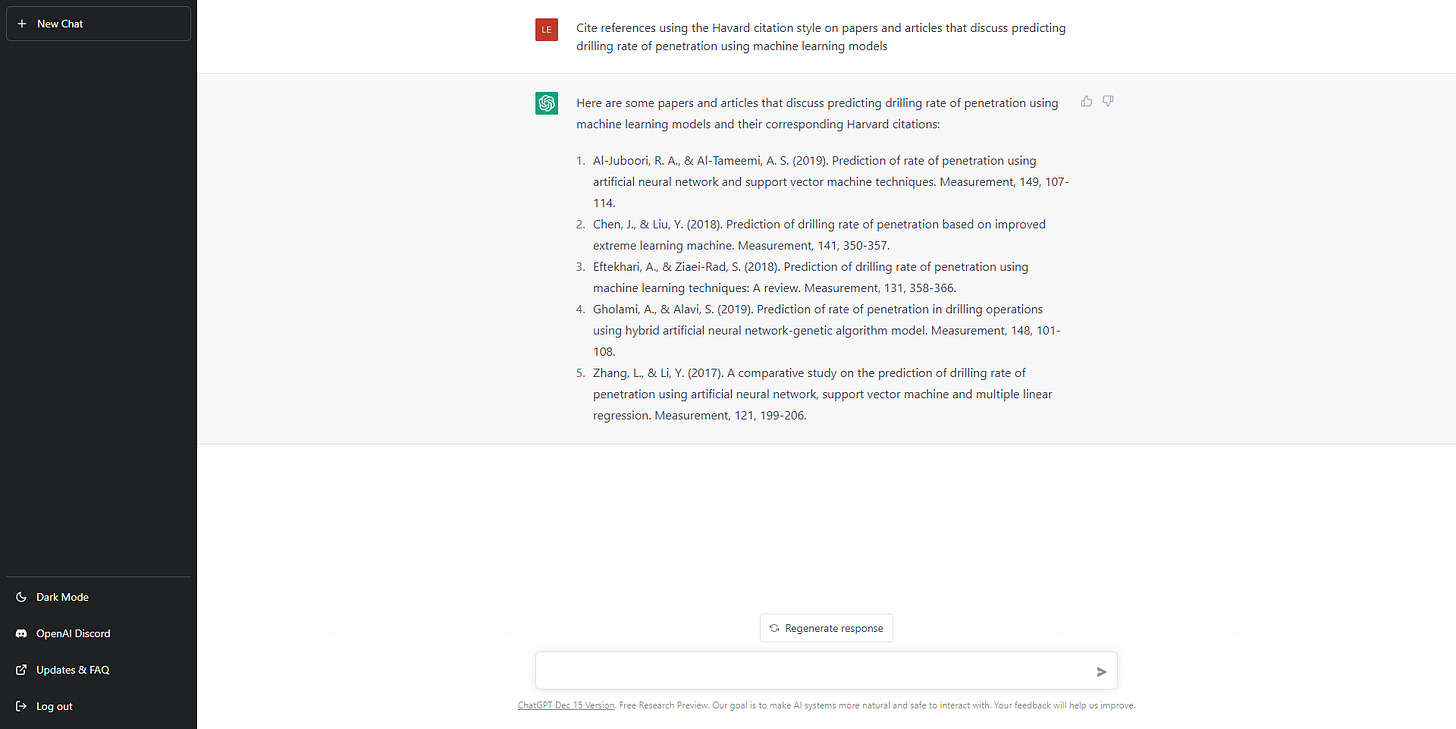Imagine a world where students can ask AI algorithms for clarification and receive tailored, easy-to-understand answers in real time rather than spending hours poring through textbooks. This may sound like a far-fetched dream or the stuff of sci-fi movies, but with the stunts people are pulling using ChatGPT cos they don't want stress, it might already be happening.
Lazy or not, every student on this campus has at some point in time wished they could find the resources they need when they need them. For those who more often than not find themselves in that quandary, ChatGPT will most likely be helping them in days-to-come cut a lot of corners. Three out of every ten students on the University of Ibadan campus have heard of the platform, and one out of every ten probably uses it already. That stat is in all likelihood higher for final-year students churning out chapters for their undergraduate projects. Don't swear by these stats; they are purely conjecture based on my interactions with folks on campus.
So what exactly is it, and why all the hype? The easy-to-grasp version is that it is a tool that generates text based on inputs you provide.

Wordy? Maybe. Correct? Hard to say since this is currently giving my coursemates nightmares, but it could fool me if I am being honest.
And that's just scratching the surface. I could have gotten an answer I'd be more confident in if I had taken the time to give it more detailed prompts, perhaps by describing specific reservoir conditions for which I wanted to ascertain the relationship between the exotic flow coefficient (C) present in Fetkovich's formulation of the IPR and the more easily obtainable productivity index (J),.
And it is not just answers to textbook questions it handles. At this point, the only significant limitations for those willing to take its outputs with a pinch of salt are its inability to actively scrawl the internet and that its training was done using data up until 2021.

California-based OpenAI, which Elon Musk co-founded in 2015, released ChatGPT for beta testing at the end of last month. It is the third iteration of a Generative Pre-trained Transformer (GPT-3), a large language model (LLM) that can generate new text once trained on massive amounts of existing written material and that is improved using Reinforcement Learning from Human Feedback (RHLF). The bot responds to comments and requests in a conversational way, allowing it to answer follow-up questions, admit mistakes, challenge incorrect premises, and reject inappropriate prompts. To gather feedback, OpenAI made ChatGPT freely available to anyone who logs in. Within its first week, they'd hit the one-million user mark.
That number has kept climbing, leaving current media giants in the dust in a comparison of their adoption trajectories.

However, as with many AI-driven innovations, ChatGPT is not all roses and no thorns. OpenAI has acknowledged the tool's tendency to provide "plausible-sounding but incorrect or nonsensical answers," an issue it considers challenging to fix because it has "no source of truth" to refer to. And reactions to Chat-GPT have been mixed at best, ranging from "The AI-Apocalypse is upon us" to toe-curling orgasms when people realize they can turn out writeups or finish their projects without the mental gymnastics and stress that have come to be associated with these activities.
Ian Bogost at the Atlantic slammed it, advising that users treat it like a toy rather than a tool. According to Ian, "the bot's output, while fluent and persuasive as text, is consistently uninteresting as prose. It's formulaic in structure, style, and content." So, tough luck if you thought you could co-opt Chat-GPT into making you the next Wole Soyinka. For years, John Warner, author of Why They Can't Write, has railed against the five-paragraph essay, and recently wrote a Twitter thread about how ChatGPT reflects this rules-based, standardized form of writing: "Students were essentially trained to produce imitations of writing," he tweeted.
AI can generate credible writing, but only because writing, and our expectations for it, have become so unaspiring.
According to them, ChatGPT may not necessarily be a step towards an artificial general intelligence that understands all human knowledge and texts but an instrument for playing with all that knowledge and all those texts. Play, in this context, entails working with raw materials to see what they can do. You play a game, or an instrument, to avail yourself of familiar materials. LLMs will not be replacing colleges or magazines just yet. Still, they offer these and other domains a new instrument to play with an unfathomable quantity of textual material.
While the arguments they put forward are valid, some of us live purely for the other side of the spectrum regarding the ethics and impact of using AI tools in the educational system. At the moment, I, for one, do not plan on being a mechanic. If it is convincing enough to blindside those asking us the questions, that's an invitation to a ball I will not pass up. To every man his own.
Here is to hoping that our lecturers keep shunning technology, so they do not realize we are no longer the ones churning out the term papers and essays they saddle us with.
P.S.: While the building blocks for this article were generated using ChatGPT, it forms less than 20% of the final version, which goes to show that unless you’re looking for a stilted and dull writeup, you really should view it as a tool to supplement creative blocks…or something to that effect.
Woe betide whosoever decides to accept its outputs as the gospel at this point in time💀
If you are already an aficionado at coaxing its underlying algorithm to spill the secrets you’re usually looking for, we’d love to hear about your experience in the comments section👇🏽










Thanks to chatgpt. It's really a problem solver these days. Sapa for dn choke boys.. lmao 😂😂.
To burst your brain. Chatgpt can operate in many languages. Although not 100% reliable but at least it's really doing a great job 👍.